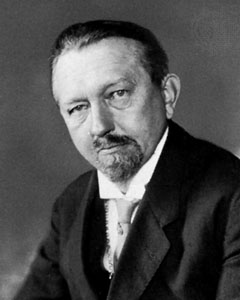Frobenius, Leo
Leo Frobenius (1873-1938), was a German ethnologist and a leading  authority on prehistoric art. He travelled extensively in West Africa and published many books on the cultures of the region. He placed Atlantis in the Yoruba region of Nigeria. Frobenius believed that the Etruscans had an Atlantean culture and were responsible for the establishment of Benin around 1300 BC and that it was a city in this region that had been described by Plato.
authority on prehistoric art. He travelled extensively in West Africa and published many books on the cultures of the region. He placed Atlantis in the Yoruba region of Nigeria. Frobenius believed that the Etruscans had an Atlantean culture and were responsible for the establishment of Benin around 1300 BC and that it was a city in this region that had been described by Plato.
I must point out that Frobenius was not the first to propose Nigeria as the home of Atlantis. Cyril Hammond Elgee (1871-1917) was the British Resident (local administrator) in Ibadan, Nigeria from 1902 until 1913. In 1914 he wrote a paper entitled The Evolution of Ibadan(h). His suggestion that Nigeria had been the location of Atlantis predated by some years the publication of Frobenius’ theory.
Jason Colavito has drawn attention to the racism displayed by Frobenius, an example of which is when he declared that the Atlantean civilisation of Yorubaland had been white(d). A report of his 1912 expedition was published and is now available online [1279].
He reported on his discoveries to the German Kaiser, who showed great interest in his work.
Five expeditions gave him enough information to publish a twelve-volume work entitled Atlantis. During his work there Frobenius wrote to friends complaining that local English officials had confiscated many of his finds(c).
In 1910 he published, in German, Atop the Rubble of Classical Atlantis that filled three large volumes. Much of his work is currently being translated into English and French.
Another site(a) reviewing Frobenius’ work also claims that he linked the ancient Yoruba kingdom with that of the Etruscans and suggests a common Atlantean ancestry. The same site backs a central Atlantic location for Atlantis, citing as ‘evidence’ the 18th century Bauche map(b).
Three papers taken from Frobenius’ work have been published on the Atlantisforschung website, with an English translation here(e)(f)(g).
(a) https://eden-saga.com/en/atlantis-american-empire-back-to-europe-etrusque-africa-yoruba-country.html
(b) https://eden-saga.com/en/greek-philosophy-mythology-timeos-critias-plato-s-atlantis.html
(c) https://trove.nla.gov.au/ndp/del/article/207225672?searchTerm=Atlantis discovered&searchLimits=
(e) Über die Bedeutung: “Atlantis” (Teil I) – Atlantisforschung.de (atlantisforschung-de.translate.goog)
(h) http://books.google.ie/books/about/The_Evolution_of_Ibadan.html?id=vyQZAAAAIAAJHYPERLINK “ *
